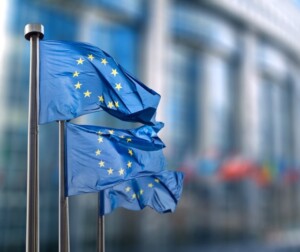 In the intricate tapestry of European policy, a series of pivotal developments are orchestrating the course of climate action and green policies within the European Union. These unfolding events hold the potential to reshape the trajectory of environmental sustainability, sparking debates and speculations about the future of climate governance.
In the intricate tapestry of European policy, a series of pivotal developments are orchestrating the course of climate action and green policies within the European Union. These unfolding events hold the potential to reshape the trajectory of environmental sustainability, sparking debates and speculations about the future of climate governance.
Central to these developments is the nomination of Wopke Hoekstra, the outgoing Foreign Minister of the Netherlands, as a prospective EU Commissioner responsible for climate affairs. However, this nomination was greeted with scepticism, mainly by MEPs from the Socialist Group, due to his political affiliation, aligned with the centre-right European People’s Party (EPP). Left-leaning Members of the European Parliament (MEPs) are particularly wary of entrusting the critical climate portfolio to an EPP representative, a party they perceive as advocating for a more measured approach to environmental lawmaking.
The dynamics surrounding Hoekstra’s nomination highlight the intricacies of European Union politics. President Ursula von der Leyen’s approval is the first hurdle, but it is the MEPs who wield significant influence through the parliamentary hearing process. MEPs’ reservations underscore their commitment to aligning climate policies with the agenda of the centre-left Socialists & Democrats (S&D) group and the Greens. The hearing thus becomes a pivotal moment for Hoekstra to allay concerns, showcase his dedication to climate change EU commitments and demonstrate his ability to navigate the complexities of global climate governance. In any case, once approved by the European Parliament, the new Dutch Commissioner will have to be formally appointed by the European Council with a qualified majority.
Several observers point out that the departure of Frans Timmermans, the former EU Commissioner for climate and the driving force behind the European Green Deal, might set the stage for a significant reconfiguration of the climate leadership landscape. Timmermans’ decision to lead a coalition into the Dutch national elections creates a void in the EU’s climate diplomacy efforts. This void, however, is poised to be filled by Maroš Šefčovič, a seasoned centre-left politician known for adeptly handling contentious roles. Šefčovič’s elevation to the position of Executive Vice President and his charge over the European Green Deal signify a continuity of climate efforts. Yet, the question of whether the climate action portfolio will be ultimately retained or reshuffled looms in the backdrop.
The transition of responsibilities from Timmermans to Šefčovič is a testament to the EU’s capacity to adapt to changing circumstances. Šefčovič’s track record of navigating complex roles, including post-Brexit UK relations, underscores his aptitude for diplomacy and consensus-building. With the Green Deal at the centre of EU policy, Šefčovič’s leadership will be integral in driving forward a sustainable growth strategy for Europe. His mission extends beyond formulating new climate legislation to the task of effectively implementing the Green Deal and fostering innovation in clean industries.
However, in the delicate checks and balances of European governance, the Dutch connection remains pivotal. Dutch MEPs advocate for keeping the climate chief position within Dutch hands, citing crucial upcoming negotiations on the EU Nature Restoration Law. This legislation is emblematic of the EU’s commitment to conservation and ecological restoration. The delicate balancing act of aligning green policies with national interests, as highlighted by concerns over the Dutch nitrogen crisis, amplifies the complexity of the situation.
Yet, these shifts in leadership also resonate with a broader narrative of European unity. The EU’s climate journey involves striking a balance between industry interests, environmental conservation, and societal equity. The transition from Timmermans to Šefčovič signifies a collective commitment to upholding these values and advancing climate goals.
As the EU navigates these transformations, the choice of individuals to occupy key roles will be instrumental. The careful selection of leading figures who possess the capacity to address the concerns of diverse stakeholders—ranging from industries to environmental advocates—will define the EU’s stance on climate change. The European Green Deal’s ambitious objectives require not just adept policy-making, but also skilful diplomacy, consensus-building, and resilience in the face of challenges.
Amid these dynamic developments, the European Union stands at a crossroads. The choice to embrace a green and socially just future is as much a political decision as it is a moral imperative. As the intricacies of climate governance unfold, the EU’s role as a global leader in environmental conservation comes into sharp focus. With a legacy rooted in cooperation and collective action, the European Union’s response to the climate crisis will resonate far beyond its borders, in an increasingly economically and ideologically fragmented global landscape.